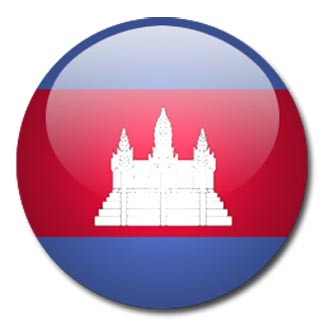Cambodia's genocide court told of Khmer Rouge torture prison horrors
 Phnom Penh - Prosecutors at Cambodia's UN-backed genocide tribunal on Tuesday told of prisoners at a notorious Khmer Rouge torture facility being bludgeoned to death, thrown from buildings and drained of their blood during the radical regime's 1975-79 reign.
Phnom Penh - Prosecutors at Cambodia's UN-backed genocide tribunal on Tuesday told of prisoners at a notorious Khmer Rouge torture facility being bludgeoned to death, thrown from buildings and drained of their blood during the radical regime's 1975-79 reign.
In their opening arguments in the trial of former Tuol Sleng torture prison chief Kaing Guek Eav, known by his revolutionary name Duch, prosecutors described a meticulously organized apparatus of nearly four years of terror.
"Duch's crimes were part of a widespread and systemic attack on the Cambodian population that led to the deaths of millions of men, women and children," national co-prosecutor Chea Leang said.
The 66-year-old former mathematics teacher and born again Christian faces charges of torture, war crimes, premeditated murder and breeches of the Geneva Conventions, allegedly committed while the ran the high school-turned-torture prison where more than 12,000 were tortured and sent to be murdered at the Choeng Ek "Killing Fields."
He has previously claimed responsibility for crimes committed at Tuol Sleng, also known at S-21, but international co-prosecutor Robert Petit said Duch had tried to attribute blame for the torture and murders to his superiors and subordinates.
"The accused is trying to attribute blame to his superiors, saying they ordered the crimes, while also saying the day-to-day crimes were committed by his subordinates," Petit said. "He expects us to believe he was just sitting in an office all day reading confessions."
Prosecutors presented a range of documents baring Duch's signature that ordered guards to torture and "smash" prisoners.
They said witness testimonies and evidence during the hearing will show that Duch not only supervised torture sessions and executions, but he also devised interrogation techniques used at the prison.
Duch is one of five former Khmer Rouge leaders facing trial for their roles in the deaths of up to 2 million people through execution, starvation and overwork when the fanatical Maoist group sought to reverse history, eliminate modern Cambodian culture and start again at "year zero."
This most crucial stage of his trial began on Monday, when the court was told that prisoners were routinely tortured, shackled in tiny cells for almost 24 hours a day, were not permitted to speak unless being interrogated, received barely any food and were "forced to urinate in jerry cans and defecate in ammunition boxes."
A pre-trial investigation found that guards conducted medical experiments on prisoners.
The hearing will run until mid-June, during which time Tuol Sleng survivors, guards, experts and Duch himself will be called to testify.
He faces a maximum sentence of life in prison. (dpa)